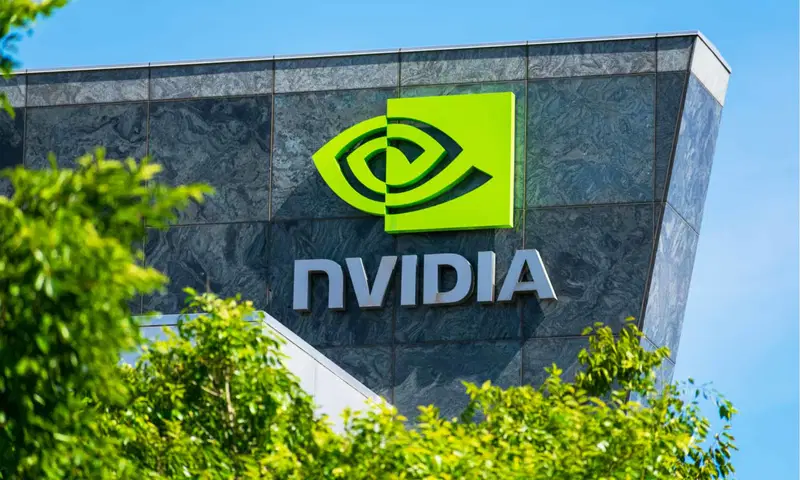Nvidia has made history by becoming the first company to surpass a $4 trillion market valuation, underscoring Wall Street’s growing conviction that artificial intelligence (AI) will reshape the global economy.

On Wednesday, Nvidia’s stock briefly surged to $164.42 shortly after markets opened, pushing its valuation past the $4 trillion mark before dipping slightly. The California-based chipmaker, led by CEO and electrical engineer Jensen Huang, has emerged as the central player in the ongoing AI revolution.
“The market has an incredible certainty that AI is the future,” said Steve Sosnick, chief strategist at Interactive Brokers. “Nvidia is certainly the company most positioned to benefit from that gold rush.”

Nvidia’s market cap now exceeds the gross domestic product (GDP) of major global economies like France, the United Kingdom, and India — a striking indicator of investor confidence in AI’s long-term impact on productivity, automation, and innovation.
Nvidia’s Surge Boosts Broader Markets
The company’s meteoric rise is also lifting the broader stock market, outpacing major indices like the S&P 500 and Nasdaq. Market optimism has been buoyed in part by political developments, including former President Donald Trump’s reversal of some of his previously harsh tariff policies that had rattled global markets earlier in the year.
Even with Trump’s recent tariff announcements, market indices remain near record highs. “You’ve seen the markets walk us back from a worst-case scenario in terms of tariffs,” said Angelo Zino, senior technology analyst at CFRA Research.
Despite facing ongoing U.S. export restrictions to China and uncertainty around trade, Nvidia is finding opportunities abroad. Its deal to build AI infrastructure in Saudi Arabia during Trump’s state visit in May is viewed as a potential benefit of the administration’s trade strategy.
“We’ve seen the administration using Nvidia chips as a bargaining chip,” Zino added.

Poised for 2026 Growth
Nvidia’s climb to the $4 trillion threshold caps a steady two-year ascent driven by mounting enthusiasm for AI. In 2025 alone, its shares have surged by 20%, compared to a 6% gain in the Nasdaq Composite.
Huang, who was born in Taiwan, has repeatedly impressed investors with Nvidia’s innovations — especially its high-performance graphics processing units (GPUs), which are essential to powering generative AI applications across industries including robotics, autonomous vehicles, and software development.
The company’s momentum has been further fueled by new technologies like its Blackwell system, which Huang introduced in March. He described it as a platform capable of enabling “virtually all productions to be created and brought to life long before it is realized physically.”

Navigating Challenges and Competition
Still, Nvidia faced headwinds earlier in 2025 following concerns around Chinese AI startup DeepSeek, which briefly led to a $600 billion dip in its valuation. However, Nvidia has since rebounded, with Huang welcoming DeepSeek’s emergence as part of a larger AI ecosystem while opposing restrictive U.S. export measures.
Despite a $4.5 billion impact from those controls, Nvidia posted nearly $19 billion in earnings for the most recent quarter — a sign that AI demand remains strong across the tech sector.
The AI race is intensifying among major players including Microsoft, Google, Amazon, and Meta, all investing billions in next-generation AI technologies. According to a UBS survey of tech executives, Nvidia has extended its lead over competitors.
Zino noted that the DeepSeek episode may have ultimately bolstered confidence in Nvidia by underscoring the growing demand for complex reasoning models in AI, known as “AI agents.”
“Overall, the demand landscape has improved for 2026 for these more complex reasoning models,” Zino said.
With its strong position at the heart of the AI ecosystem, Nvidia appears well-poised to shape the future of intelligent machines — and maintain its dominance in a rapidly evolving global market.




